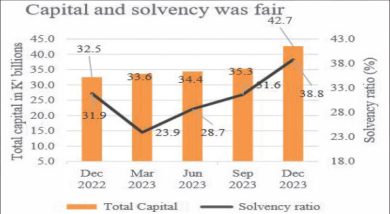Three quarters of the world’s poor unbanked
In a 2011 survey of about 150 000 people in 148 countries, World Bank found that more than 75 percent of adults earning less than $2 a day did not use a formal financial institution.
The bank says the phenomenon of being ‘unbanked’ is also linked to income inequality—the richest 20 percent of adults in developing countries are more than twice as likely to have a formal account as not the poorest 20 percent.
Those without access to formal banking often have to rely on money lenders (katapila) who often charge high fees. In Malawi katapila men charges are based on three or more unofficial interest rates such as Mwala ku mwala (100 percent), fumbi ku fumbi (50 percent ) or dothi ku dothi (25 percent).
The ‘unbanked’ are also less likely to start their own business or insure themselves against unexpected events, notes the bank.
“Financial inclusion, or being “banked†can be transformative, as it allows poor people to build a more secure future. The ability to save and borrow allows them to build their assets, start a business, invest in education, establish a credit rating, and eventually own a home,†says the bank in the new report released on Thursday 19 April 2012.
Of late, Malawian banking public has been pushed further on the banking edge when government and Bankers Association of Malawi (BAM) introduced measures that do not encourage locals to get the best out of banking.
Apart from government introducing tax on some banking services, BAM an umbrella body of all the 12 commercial banks trading in the country, has also announced suspension of all third party cheques with effect from April 10 2012.
Justifying the ban, BAM president John Bizwick indicated the move was made to halt massive fraud that resulted in the banking industry losing an estimated K100 million (about $600 000) a year. Biziwick claims the suspension is meant to discourage the tendency and encourage people to cash cheques through their bank accounts and not through the counters.
“When the issue was tabled at the [BAM] council meeting, we decided that this is the only way to discourage the fraudulent activities,†says Bizwick.
But locals are not amused.
“I would rather keep my money in my pillow and home than to trouble myself with banks who will only rob me my money,†says an entrepreneur Matthews Masamba of Chilomoni township.




